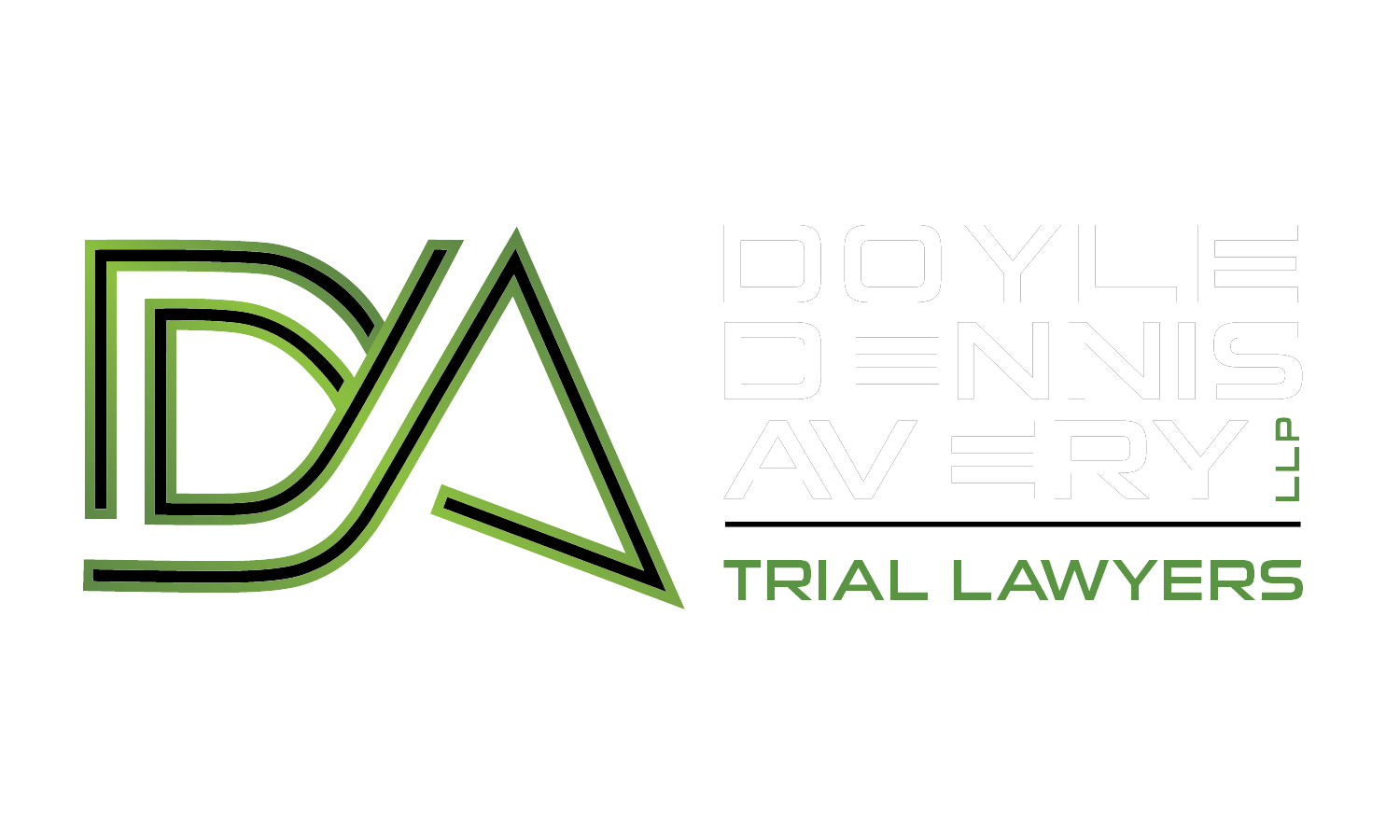Trucking Industry Safety
Doyle Dennis Avery LLP represents workers in the trucking and transportation industry who have been wrongfully terminated or retaliated against after reporting unsafe or illegal conduct. Through its protection for trucking industry employees and whistleblowers, the STAA provides important protection and remedies to prevent and deter retaliation and improper conduct.
Doyle Dennis Avery LLP represents whistleblowers throughout the United States, who have reported important safety concerns either internally or externally. This may include reporting safety violations, reporting unlawful conduct, participating in an investigation, testifying before a governmental agency, externally reporting violations to law enforcement, internally voicing safety concerns, or taking steps towards any of these acts.
Federal law protects employees within certain industries who have been retaliated against due to their report of misconduct. This includes the following industries:
What is the Surface Transportation Assistance Act?
The Surface Transportation Assistance Act (“STAA”), 49 U.S.C. § 31105, is an important statute that provides protection to truck drivers and other working in the trucking industry. Congress passed the anti-retaliation provisions of the STAA to encourage reporting safety violations or non-compliance with federal law.
What types of whistleblowers are covered?
The STAA protects employees working in the transportation and trucking industry. This includes drivers who operate a commercial motor vehicle and other trucking industry employees, such as mechanics or freight handlers. Under the STAA, a commercial motor vehicle includes a “self-propelled or towed vehicle used on the highway in commerce principally to transport cargo or passengers.” Some examples of the type of vehicles covered by the STAA include the following:
What is retaliation or wrongful termination under the Surface Transportation Assistance Act?
For employees or contractors who fit the requirements of the STAA, federal law prohibits employers from terminating, retaliating, or discharging the employee for the following:
- A vehicle with weight rating or gross vehicle weight of at least 10,001 pounds;
- A vehicle that transports hazardous.
- A vehicle designed to transport more than 10 passengers; or
The STAA generally applies to the following types of employers:
- Commercial Motor Vehicle operators and carriers;
- Mechanics of Commercial Motor Vehicle operators;
- Freight handlers, forwarders, and brokers;
- Logistic companies; and
- Leasing agents.
How to file a STAA wrongful termination or retaliation lawsuit?
If an employer has violated the STAA, an employee must file a complaint with OSHA either within 180 days after the retaliation or after the date when the employee learned of the retaliation. After an OSHA investigation, the parties can institute a proceeding before an administrative law judge. This process includes discovery and testimony similar to a bench trial before a judge. After a decision by the administrative law judge, either party can appeal to the Department of Labor. In addition, the employee may bring a lawsuit in federal court if the Department of Labor has not reached a final decision on the claim within 210 days.
- Refusing to operate a vehicle because to do so would violate a federal commercial motor vehicle rule related to safety, health, or security, or because you had a reasonable apprehension of serious injury to yourself or to the public related to a vehicle’s safety or security condition;
- Filing a complaint or initiating or participating in a proceeding related to the violation of a commercial motor vehicle safety or security rule;
- Cooperating with certain federal safety or security investigations; or
- Providing information in an investigation by a federal, state, or local regulatory or law enforcement agency relating to any accident or incident resulting in injury or death or property damage that occurred in connection with commercial motor vehicle transportation; or
- Accurately reporting hours of service (HOS).
In addition, federal law may also protect employees who have been harassed or coerced about following safety regulations or who were perceived to have engaged in a protected activity, as listed above. Federal courts have recognized that certain types of conduct may be retaliation, including firing/discharging; discipline/write ups; demotions/transfers/reassignments; blackballing; harassment/bullying; and failure to rehire/hire.
How to file a STAA wrongful termination or retaliation lawsuit?
If an employer has violated the STAA, an employee must file a complaint with OSHA either within 180 days after the retaliation or after the date when the employee learned of the retaliation. After an OSHA investigation, the parties can institute a proceeding before an administrative law judge. This process includes discovery and testimony similar to a bench trial before a judge. After a decision by the administrative law judge, either party can appeal to the Department of Labor. In addition, the employee may bring a lawsuit in federal court if the Department of Labor has not reached a final decision on the claim within 210 days.
Do I need a lawyer?
Similar to other federal statutes, the STAA can be particularly difficult for a lay person to understand. It is important to retain an experienced lawyer with knowledge of the STAA and the skill to present a case to a judge or jury. Doyle Dennis Avery LLP has noteworthy success and experience representing employees who have been retaliated against, including a $1.7 million verdict in Ball v. Alleyton Resource Company, a $1.9 million verdict in Reginald Newberne v. Dept. of Public Safety, and a $6.5 million verdict in Gomez v. Memorial Hermann Hospital System. If you would like to learn more about our firm or schedule a free consultation, contact us today.
What damages are available for whistleblowers under the STAA for wrongful termination or retaliation?
As part of that claim, the employee may seek past and future lost wages, mental anguish, reputational harm, attorney’s fees and costs, reinstatement, and punitive damages.

Michael DoylenPartner

Patrick M. Dennis

Jeff Avery

Emma Brockway
Copyright © 2024 Doyle Dennis Avery LLP Trial Lawyers. All rights reserved. Powered By Blue Beam LLC
The information on this website is intended for general informational purposes only and is not legal advice for any individual case or situation. Viewing or receipt of content on this website does not create an attorney-client relationship between the user and Doyle Dennis Avery LLP.
The cases, verdicts and settlements displayed on this site are solely for illustrative purposes and should not be considered a guarantee or prediction of the outcome of any other claims or cases. Each case is unique, and past outcomes are not indicative of future results.
We recommend that users consult with an attorney for legal advice on any questions or concerns they may have. Users rely on the information on this website at their own risk.
